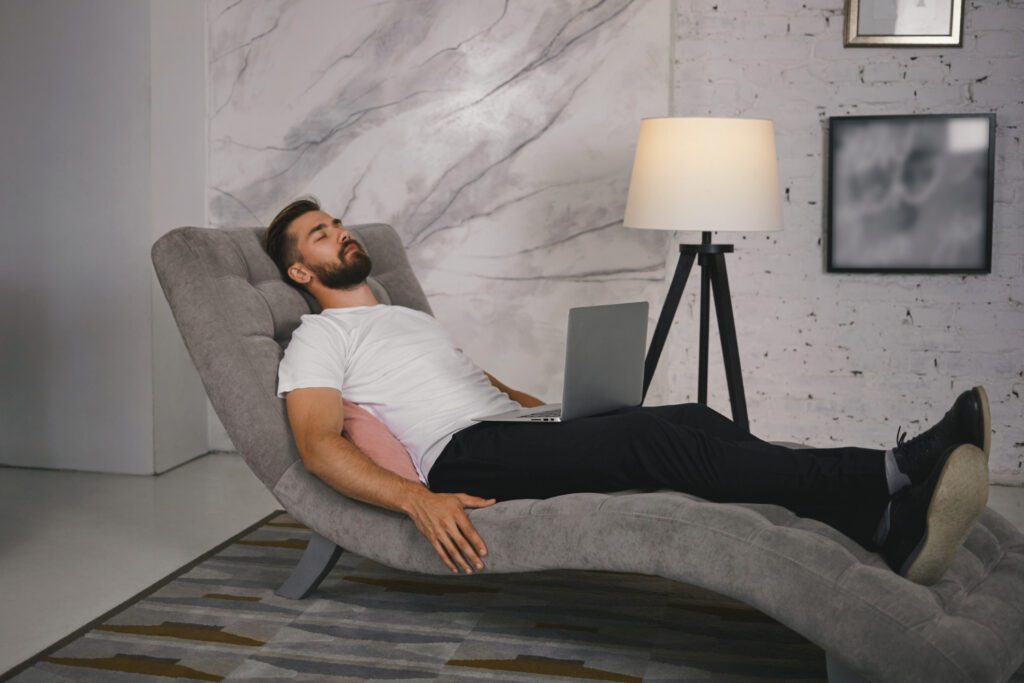Simple Bedtime Routine for Adults with Anxiety
When your mind won’t stop racing at night, falling asleep can feel impossible. For adults with anxiety, even a small worry can spiral into a sleepless night. That’s why building a calming bedtime routine is more than just helpful—it’s essential for better mental health and restful sleep.
A consistent, gentle routine helps your brain transition from stress to rest. And the good news? It doesn’t have to be complicated.
Why Adults with Anxiety Need a Bedtime Routine

If you struggle with anxiety, your nervous system is often in a state of alert—even when you’re lying in bed. A thoughtful routine can train your body to relax at the same time each night, making sleep come easier and faster.
Think of it as giving your mind permission to slow down.
Research shows that routines help reduce nighttime anxiety and improve sleep quality, especially when done consistently. According to Healthline, simple changes like screen-free time, relaxation techniques, and sleep-friendly habits can make a big difference.
A Simple Bedtime Routine for Adults with Anxiety
You don’t need an elaborate plan. The key is to choose a few soothing activities that calm both your body and mind. Here’s a beginner-friendly routine you can start tonight:
1. Set a consistent bedtime
Choose a bedtime and stick to it—even on weekends. This trains your internal clock and helps reduce anxiety about not getting enough sleep.
2. Dim the lights 1 hour before bed
Bright lights keep your brain alert. Use warm, soft lighting or switch to lamps. This signals your body that it’s time to wind down.
3. Turn off screens 30–60 minutes before sleeping
Phones, TVs, and laptops emit blue light that interferes with melatonin, the hormone that helps you sleep.
4. Try one of these calming activities:

- Gentle stretching or light yoga
- Reading a physical book (not a screen)
- Journaling to release anxious thoughts
- Listening to calming sounds or guided meditations
- Drinking a warm, non-caffeinated beverage like chamomile tea
5. Use deep breathing or grounding exercises
Simple breathing patterns like 4-7-8 (inhale 4 seconds, hold for 7, exhale for 8) can calm your nervous system. You can also try grounding techniques like focusing on your senses—what you see, hear, and feel.
6. Keep your bedroom cool and clutter-free
A peaceful space makes it easier to relax. Aim for a room temperature between 60–67°F (16–19°C) and remove any clutter that might stress you out.
Extra Tips to Support Your Sleep
Creating a routine is a great start, but here are a few bonus ideas to strengthen it:
- Limit caffeine after 2 PM
- Avoid doom-scrolling or reading stressful news before bed
- Write down tomorrow’s to-do list earlier in the evening to clear your mind
- Use calming scents like lavender or eucalyptus
- Consider weighted blankets, which can help reduce anxiety and improve sleep. According to Verywell Mind, many people find they promote a deeper sense of calm.
How Long Does It Take to Work?
Like most habits, consistency is key. Many people notice better sleep within a few days of following a regular bedtime routine for adults with anxiety. For others, it might take a couple of weeks. Be patient with yourself and treat the routine as a form of self-care—not another task to stress about.
Final Thoughts
If anxiety keeps you up at night, you’re not alone. But you don’t have to accept restless nights as your norm. A simple, gentle bedtime routine for adults with anxiety can help your mind slow down and your body relax—so you can finally get the rest you deserve.
FAQ: Bedtime Routine for Adults with Anxiety
What if my anxiety feels worse at night?
That’s common. Try writing your thoughts in a journal before bed or doing a grounding exercise to bring your focus to the present moment.
Can meditation really help me sleep?
Yes, many people find guided meditations or body scan exercises extremely helpful. Start with short 5–10 minute sessions.

Pingback: How to Use Lavender Oil for Better Sleep Naturally
Pingback: 9 Natural Remedies for Kids Who Can’t Sleep at Night - Start Sleeping Well
Pingback: 9 Best Bedtime Books for Adults with Insomnia - Start Sleeping Well
I truly appreciate this post. I have been looking everywhere for this! Thank goodness I found it on Bing. You have made my day! Thx again
Pingback: Why Am I Tired but Can’t Fall Asleep? 7 Common Reasons
Pingback: Can Lavender Tea Help You Sleep Better? Here’s the Truth